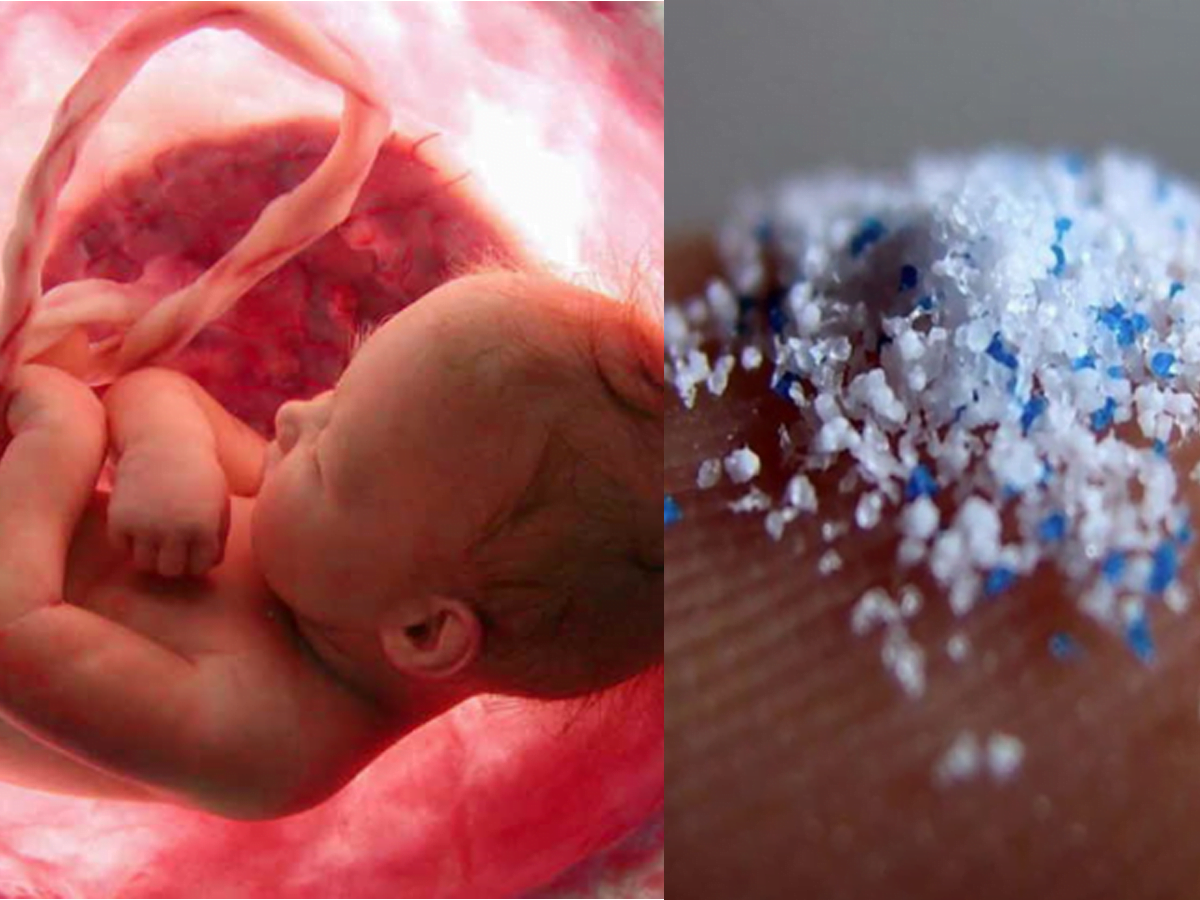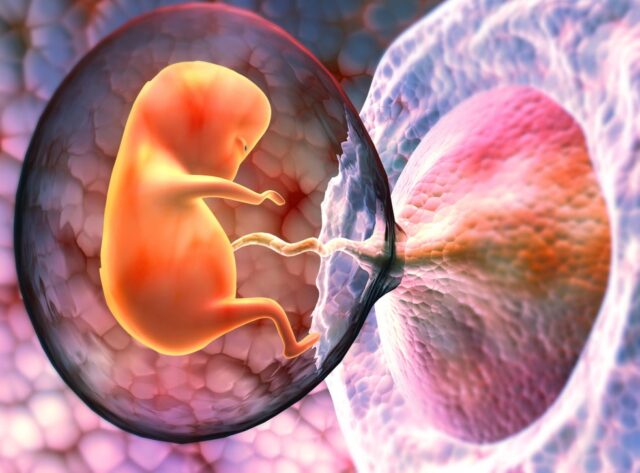Yes, now even babies are being born with plastic already inside them. Seems unbelievable right? But unfortunately, it is true.
A new research study has revealed that placentas of unborn babies have microplastic particles present in them.
The Research
The new research study, published in the journal Environment International, titled ‘Plasticenta: First evidence of microplastics in human placenta’, by a team of researchers in Rome, has tagged this finding as “a matter of extraordinary concern”.
In the study, the researchers have concluded that this microplastic pollution in the placenta is very concerning as placenta is the main supporting organ for proper foetal development.
The study said, “Due to the crucial role of placenta in supporting the foetus’s development and in acting as an interface with the external environment, the presence of potentially harmful plastic particles is a matter of great concern. Further studies need to be performed to assess if the presence of microplastics may trigger immune responses or may lead to the release of toxic contaminants, resulting in harm.”
In the research, about 4% of every sample placenta was analysed, indicating that the total percentage of microplastics concentration may be significantly greater.
Placentas from four healthy women had microplastic particles in it. Both the foetal and maternal sides of the placenta had traces of microplastics. Even the membrane inside which the foetus grows had microplastics particles in them. However, all four pregnancies were normal and all mothers and newborn babies were healthy.
Throughout the study process, the researchers ensured a stringent plastic-free environment protocol in order to prevent any contamination of the placentas during delivery of the babies. The doctors and the midwives or nurse wore cotton gloves during the delivery of the babies.
Read More: How Something As Damaging As Plastic Has Become Our Savior During COVID-19
Interestingly, on further analysis, it was found that these microplastic particles had hints of colours.
As per the research, “All of them were pigmented; three were identified as stained polypropylene a thermoplastic polymer, while for the other nine it was possible to identify only the pigments, which were all used for man-made coatings, paints, adhesives, plasters, finger paints, polymers and cosmetics and personal care products.”
According to research’s lead scientist Antonio Ragusa, director of Obstetrics and Gynaecology, San Giovanni Calibita Fatebenefratelli hospital in Rome, “It is like having a cyborg baby: no longer composed only of human cells, but a mixture of biological and inorganic entities…The mothers were shocked!”
Placenta Is Important!
The placenta is the most important organ for the development of a fetus. It helps in delivering nourishment and oxygen, managing faecal waste disposal, in short keeping the fetus alive till it’s own organs develop.
The placenta also has the job of blocking contaminants or filtering out possible pathogens from reaching the developing foetus.
Ragusa’s team commented “Due to the crucial role of placenta in supporting the foetus’s development and in acting as an interface with the external environment, the presence of potentially harmful plastic particles is a matter of great concern. Further studies need to be performed to assess if the presence of microplastics may trigger immune responses or may lead to the release of toxic contaminants, resulting in harm.”
It’s Not The First Time
Last year in October, another research study had found that newborn infants who were bottle-fed ingest more than a million particles of microplastics daily. Another study from 2019 revealed that humans, on an average, consume the plastic equivalent to the amount of plastic present in a credit card per week.
Plastic, being non-biodegradable, cannot be chemically broken down, it only breaks into smaller particles, thus ending up everywhere, littering up our lands and choking marine wildlife, and also ultimately affecting the food chain too.
Image Sources: Google Images
Sources: India Today, Wion, News 18
Find the Blogger: @aditi_21gupta
This post is tagged under: Microplastic Pollution, Placenta, Plastics, Babies, Environment International, Plasticenta: First evidence of microplastics in human placenta, Rome, a matter of extraordinary concern, pregnancies, paints, adhesives, plasters, finger paints, polymers, cosmetics, personal care products, Antonio Ragusa, cyborg baby, toxic contaminants, non-biodegradable, food-chain, harmful, harm, pollution enters humans, immune system
Other Recommendations:
‘Wastage Of Judicial Time’: SC Imposes Fine Of Rs 15,000 On UP Government For Delay






































Excellent blog you have got here.. It’s difficult to find high quality writing like yours these days.
I honestly appreciate individuals like you! Take care!!